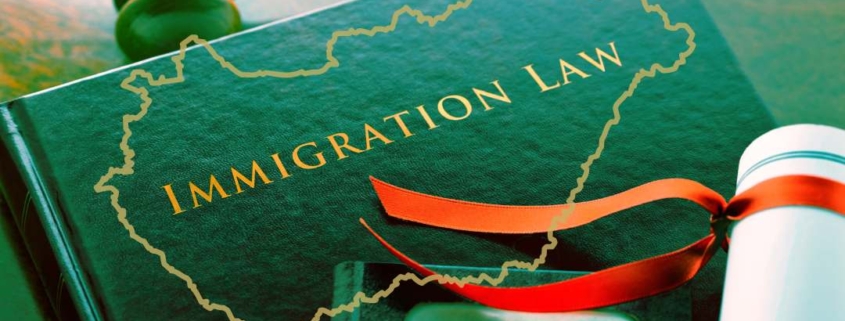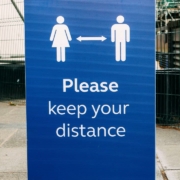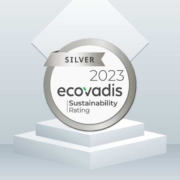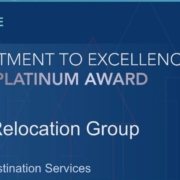Update: New immigration regulations in Hungary from 1st January 2024
Understanding Immigration Regulations in Hungary
An Overview of Immigration Regulations in Hungary, Effective January 1, 2024
The previous immigration law was replaced by a new law on January 1, 2024. The implementation of the new rules is not immediate; it occurs gradually. In cases initiated until December 31, 2023, the old regulations still apply, while the new regulations apply from March 1, 2024.
In this overview, we’ll highlight the most important immigration regulations in Hungary and how they affect both individuals and employers.
Between these two dates, the processing of residence and settlement cases, as well as the submission of applications, is suspended. From March 1, 2024, only applications according to the new rules can be submitted, but previously submitted applications will be evaluated based on the old immigration law. During the suspension period, the validity of expiring permits is extended until April 30, 2024.
Those who hold a temporary residence certificate (ITI) with respect to an ongoing permit procedure will have to attend the Immigration Office in order to extend expiring temporary residence certificates.
Changes in Immigration Regulations in Hungary
The new law introduces new types of permits, and at the same time, the general “miscellaneous purpose” or “other type” permit is abolished. Every residence permit is now tied to the residence purpose and legal basis directly specified in the law, e.g. digital nomad (White Card), medical treatment, etc. In the future, it will not be possible to issue a residence permit with a general “other” purpose, lacking a specific purpose defined in the law.
These changes mark a fundamental shift in how immigration regulations in Hungary define and categorize residence permits.
“Guest Worker” Permits
The law distinguishes between permits for work purposes, specifically between permits for work in occupations requiring higher qualifications and those known as “guest worker” permits, which allow work in professions requiring lower qualifications.
Generally, family reunification residence permits cannot be associated with the latter “guest worker” permits, and they do not entitle the bearer to settlement (permanent residence) in Hungary. Additionally, they can only be extended for a limited period (up to a total of three years). After this period, the permit cannot be extended, and instead, a new application is required. The detailed regulations for this are not yet known.
The concept of a “guest worker” encompasses various types of residence permits, generally targeting employment that does not require a high level of qualification. This includes the seasonal guest worker residence permit, the residence permit for guest workers employed for the purpose of execution of investment projects, the residence permit for employment purposes, and the guest worker residence permit.
Guidance for Employers
The previous work-purpose residence permit is now mostly equivalent to the employment-purpose residence permit.
The guest worker residence permit, understood in a narrower sense, can be applied for employment by specified employers, from countries defined by law and in occupations as specified by law.
The employment permit issued for the purpose of the implementation of investment projects is aimed at employment by employers who implement an investment as defined in an agreement with the government.
For employment in professions requiring higher education, in addition to the former EU Blue Card, the new Hungarian Card is also suitable, specifically for professions defined in separate legislation.
Citizens of Ukraine and Serbia can obtain a National Card for the purpose of employment in professions specified by legislation.
“Golden Visa”
From July 1, 2024, the so-called guest-investor visa and residence permit (“golden visa”) will be available, allowing a residence of 10+10 years for a minimum real estate fund investment of 250,000 Euros. The detailed regulations for this are not yet known.
In addition to a real estate fund investment of 250,000 euros, there will be a possibility to obtain such a visa or residence permit through a real estate purchase of 500,000 Euros or a grant provided to a designated higher education institution in the amount of 1,000,000 Euros.
The former residence permit for income-generating purposes (“gainful activities”) corresponds to the guest-self-employed residence permit.
A third-country citizen may not receive a residence permit for family unification purposes if the person to be joined as a family member holds one of the following residence permits:
- Guest self-employment residence permit (held for less than one year)
- Seasonal employment-purpose permit
- Permit for employment for the purpose of investment project implementation
- Employment-purpose permit
- Guest worker residence permit
- White Card
- Study-purpose permit
- Internship-purpose permit
- Residence permit for voluntary activities
The actual implementation of the new legislation is expected to be accompanied by the creation of numerous executive decrees and additional regulations containing detailed provisions. Currently, there is no information available about these, but they are anticipated to cover the precise procedural guidelines, the documents usable and required in the procedures, as well as additional conditions and circumstances that may influence the application process.
Employer Responsibilities
Employers hiring guest workers must be prepared for several new obligations. They need to register themselves, pay registration and employment fees, and ensure that an employee whose employment or residence rights have ceased actually leaves the country.
Failure to fulfill these obligations, if the employer does not act as generally expected in a given situation, can result in a fine of 5 million forints, and they may also be responsible for covering the costs associated with the deportation of the third-country national.
Employers are advised to seek further guidance on such obligations related to the employment of third-country citizens from the expected further legal regulations and related authorities to be regulated in detail in the expected but not yet available new legislation (including executive orders and further related government decrees).
Understanding and complying with the new immigration regulations in Hungary will be critical for all businesses hiring from outside the EU.








